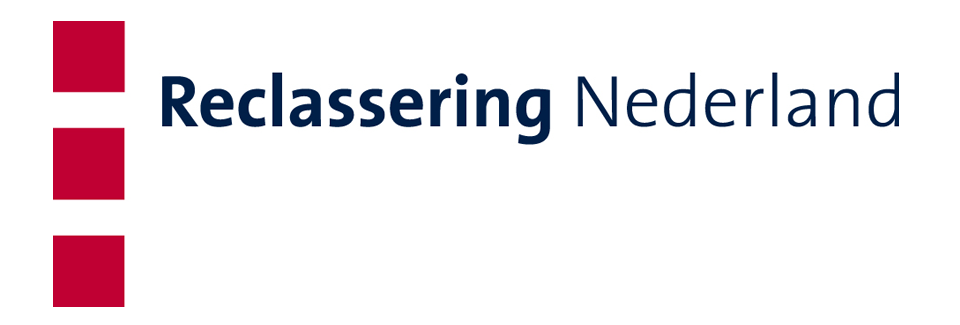Parallel Sessions
1.1A Owning the narrative of probation in world full of noise – a transformative experience / 1.1B Do family and friends improve probation and parole outcomes? An evaluation of Triple-S (Room: Mississippi)

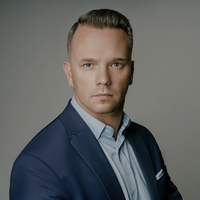

1.1A: The story of probation finds itself at a pivotal juncture of history and future. We invite probation leaders from around the world to embark on a transformative journey to redefine, reclaim, and rejuvenate probation's public narrative, ensuring that probation's narrative doesn't just blend in but stands out, inspires, and leads the discourse (Imants Mozers and Koen Goei).
1.1B: Scholars have called for the incorporation of informal social control agents into the community supervision of offenders, although systematic efforts to do so have been slow to come. This presentation discusses some of the qualitative and quantitative outcomes of evaluations of this new model of community supervision (Lacey Schaefer)
ROOM: MISSISSIPPI
1.2A Professional values and skills: the last frontier of "what works" in probation and parole / 1.2B Probation and parole; Occupation or Profession? (Room: Amazon)

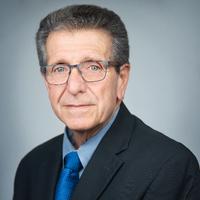
1.2A: This presentation evaluates what is needed to shore up the implementation of “principles for effective intervention” in order to achieve maximum reductions in recidivism (Mario Paparozzi).
1.2B: Drawing on examples of well-known professions such as law and medicine, this session will explore the question of what makes a field of work a profession and whether probation and parole qualifies as a profession (William Burrell). Presentation
ROOM: AMAZON
1.4 Implementation Science and Translation: Disseminating Innovations across Probation Contexts (Room: Everest 1)
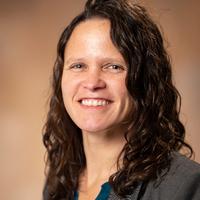

Implementation science and translation science is widely used in other fields (e.g., medicine) but there have been comparatively fewer applications of implementation science methods in corrections and probation. The application of implementation science methods throughout the phases of intervention (design and development, implementation, and evaluation) provides a set of tools that can help accelerate the translation of innovations within and across countries. Presentation
ROOM: EVEREST 1
1.6 TIDES: Merging Trauma-Informed Care & Desistance in Probation Supervision (Room: Kilimanjaro 1)


Correctional systems have been historically been caught in a web of complexity. The comprehensive model TIDES will present a transformative horizon for probation and parole. Presentation
ROOM: KILIMANJARO 1
1.7 Future track session 1: The impact of Safe society on probation and parole (Room: Kilimanjaro 2)


In the future track, we delve into the question ‘How do we, as a global probation community, deal with developments that will fundamentally change our field of work?’. We look into the impact of macro-social developments, building on the perspectives on the future of probation and parole from the participants. We work towards a future agenda, that will be transferred to the organisation of the next World Congress on Probation and Parole in 2026.
This session is about the impact of ‘Safe society’ on probation and parole. <i>How do we shape probation in a society that is increasingly risk-averse? </i>We see an increase in risk management in society, which sometimes means that the individual and human dimensions disappear from sight. This not only concerns safety risks, but also financial risks. Is risk management a guideline that we want to continue to use in our work? And how does this relate to probations core values such as compassion and forgiveness? Presentation
ROOM: KILIMANJARO 2
1.8A Alcohol monitoring and Traffic / 1.8B Intellectual disability amongst people on probation, what to do? (Room: Yangtze 1)




1.8A This session focuses on our experiences, challenges and results with the Alcoholmeter in the Netherlands. Also, we discuss our insights in with working with mandated clients convicted of traffic offences under the influence of alcohol, drugs or medication (Anne Hoeksema and Laura Nijkamp). Presentation
1.8B In this session, we focus on how the three Probation Services in The Netherlands adapted their way of working for people with intellectual disabilities, from our policy framework to specific methods of screening intellectual disabilities and tools helping both probation officers and clients to better understand one another (Bianca Pasman and Marjolein Maas).
ROOM: YANGTZE 1
1.9 Exploring Virtual Reality Applications in Forensic Psychiatry (Room: Everest 2)

This session addresses the recently developed training called VReedom: a Virtual Reality-assisted training designed to potentially enhance treatment motivation and alleviate stress in the context of preparing for the first authorized leave. The session offers a concise overview of virtual reality's role in therapeutic environments, particularly emphasizing its application in readying patients for temporary leave. Participants will also witness practical demonstrations of key VReedom training components, conducted by a skilled therapist.
The session is a collaboration between Inforsa and the Salvation Army Youth Protection and Probation Service
ROOM: EVEREST 2
2.1A Seamless and long-lasting support by probation offices as a bridge to the community / 2.1B From Dealer to Leader: The Power of Lived Experience (Room: Amazon)

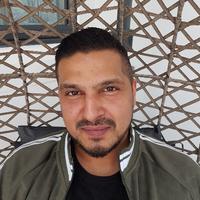


2.1A: For more than a decade, reducing reoffending has increasingly become important in Japan, as the reimprisonment rate within 5 years after release is 37.2% . The presentation will introduce Japan’s efforts to reduce reoffending by introducing national strategies, legislation, statistics and practices in probation offices (Yuho Furukawa and Naoki Tanaka).
2.1B: This talk represents a fusion of personal transformation and the importance of community engagement. Participants will be offered a unique insight into the role of innovative programs like the Peace Education Program in reshaping the trajectory of individuals involved in the criminal justice system (Julie Truschel and Billa Nanra). Presentation
ROOM: AMAZON
2.2A The Role of Probation and Parole Officers in Legal Reform in Indonesia: Addressing Overcrowding in Prisons and Detention Centers / 2.2B Implementation of the Conditional Freedom (Probation) system in Chile (Room: Mississippi)



2.2A: This research aims to delve deeper into the role of probation and parole officers in legal reform in Indonesia. In the context of reducing overcrowding of inmates in prisons and detention centers, probation and parole officers assist in improving the attitudes and behaviors of inmates through specially designed rehabilitation programs (Wahyu Saefudin and Nasuridin Nasuridin).
2.2B: This presentation shares the experience, difficulties and challenges presented by the management model of a prison benefit in freedom, in order to learn, solve critical issues and anticipate difficulties related to the reactivity of different social actors to this type of benefits aimed at social reintegration (Ricardo Hidalgo Apablaza). Presentation
ROOM: MISSISSIPPI
2.3A Designing Culturally Sensitive Strategies to Reduce Recidivism for Roma Probationers / 2.3B Global Collaboration for Evidence-Based Parole: A Path to the Future (Room: Yangtze 1)





2.3A: Roma population constitutes one of the largest ethnic minority groups in Romania. This study focuses in the cultural and social specificities among Roma probationers, with the purpose of consolidating and strengthening probation counsellor’s approaches and interventions provided for preventing infractionality and relapse by developing cultural sensitivity (Diana Laura Biris and Claudia Feher). Presentation
2.3B: This session will focus on the crucial partnerships between paroling authorities, experts, and leaders in the field. We will discuss how partnering with diverse agencies and groups can lead to evidence-based best practices (Ashley Koonce, Sylvie Blanchet and Jonathan Ogletree).
ROOM: YANGTZE 1
2.4 Risk based or strength based approach in probation? (Room: Yangtze 2)


The purpose of this round table is to reflect together on the extent to which probation organizations should work risk-based and strength-based, how this can take shape and what the advantages and disadvantages are. By exchanging views and experiences, participants can inspire each other. Presentation
ROOM: YANGTZE 2
2.5 How Can (and Why Should) Probation Agencies Participate in Condition Setting? (Room: Everest 2)


This round table focuses on lessons learned from a jurisdiction where conditions are typically set by judges and prosecutors with limited input from probation. Presentation
ROOM: EVEREST 2
2.6 An interactive discussion on the future of probation in connection with the vulnerable group of foreign national offenders (Room: Kilimanjaro 1)


This interactive session will explore the unique challenges faced by foreign national offenders and how probation services can adapt to better support this vulnerable population. Presentation
ROOM: KILIMANJARO 1
2.7 Future track session 2: The impact of Artificial Intelligence on probation and parole (Room: Kilimanjaro 2)


In the future track, we delve into the question ‘How do we, as a global probation community, deal with developments that will fundamentally change our field of work?’. We look into the impact of macro-social developments, building on the perspectives on the future of probation and parole from the participants. We work towards a future agenda, that will be transferred to the organisation of the next World Congress on Probation and Parole in 2026.
This session is about the impact of Artificial Intelligence on probation and parole. How can we use AI in a safe and useful way? Artificial intelligence will drastically change society. It is no exaggeration to say that we are on the brink of a paradigm shift. Should we view and handle this development as a threat? We think not. The crux is how we can build AI systems in such a way that they help us and our clients instead of hindering them. An important question is what we want to leave to those systems. And for answering that question we must thoroughly delve into the ethical and moral implications of AI. The other way around we have to take a critical look at the work we want to do ourselves and we have to ask ourselves why that is. Presentation
ROOM: KILIMANJARO 2
3.1 The Second World Congress for Community Volunteers Supporting Offender Reintegration (2nd WCCV) - (Room: Amazon)
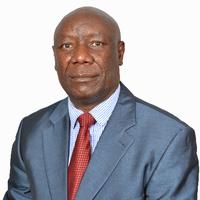









Building on the 1st World Congress for Community Volunteers, held as part of the 14th United Nations Congress on Crime Prevention and Criminal Justice, in Kyoto, Japan, 2021, and inspired by the powerful contribution of volunteer Hogoshi in Japan, the 2nd WCCV aims to showcase, explore, and advance the work of volunteers around the world.
Led by the Rehabilitation Bureau of the Ministry of Justice of Japan, with a welcome keynote by CEP Ambassador Steve Pitts, Dr Frank Porporino will moderate an interactive discussion bringing together distinguished speakers from countries and regions as diverse as Japan, Singapore, Thailand, Canada, the USA, Kenya, and Europe. The panel will share examples of the many varied and important roles undertaken by volunteers, including helping to bridge statutory services and communities, “demystifying” probation and parole work, and fulfilling the vital task of engaging community support in reintegration.
The 2nd WCCV will also focus sharply on needs and challenges, including how we can more strongly support volunteers, for example through recruitment, training, recognition, developing roles, and disseminating achievements. The 2nd WCCV will propose a Declaration to establish an annual volunteer day to help foster, extend, and sustain the role and contribution of community volunteers, helping cultivate public understanding and involvement in reintegration globally. Presentation
ROOM: AMAZON
3.2A Societal value of the Dutch probation services / 3.2B Implementation and evaluation of Core Correctional Skills: the whole organization approach (Room: Mississippi)




3.2A: This talk shares results from research on the societal benefits of probation services. The obtained insights in how this societal value is achieved can be used to increase the societal value of probation (Attila Nemeth and Anouk Visser). Presentation
3.2B: The Probation Service of Slovenia shares valuable insights and lessons from the implementation and evaluation of Core Correctional Skills in the whole organization (Ioan Durnescu and Danijela Mrhar Prelic).
ROOM: MISSISSIPPI
3.3A Care out of the box / 3.3B Why stories matter – how a sausage sandwich can save a life (Room: Yangtze 1)
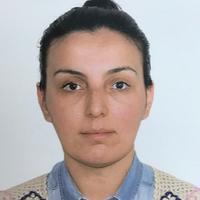
3.3A: It is in all probation practices, violations of the measures is a common problem faced in Turkish probation services. To decrease rates of violations during implementation of probation decisions, we have developed “care out of the box” (Duygu Altin). Presentation
ROOM: YANGTZE 1
CANCELED 3.3B: This session will draw on the personal experiences of the presenters as frontline Community Corrections workers over the past decade to show how “success” in offender rehabilitation can be better framed in modern offender management to reflect modern concepts (Lacey McMillan and Grace Wong).
3.4 ‘Prisoners on the outside’: Women, drugs and electronically monitored parole in Thailand (Room: Everest 1)



The 70 Bangkok Rules complement the Tokyo Rules and the Nelson Mandela Rules advocate for gender-specific programs, policies, and practices, that support women’s well-being, rehabilitation, and reintegration and for the increased use of non-custodial measures. Utilising the voices of criminalised women and probation staff, we will present findings from a study exploring women’s pathways to and experiences of EM parole in Thailand.
ROOM: EVEREST 1
3.5 Mind your mind? Mental resilience of Probation officers (Room: Everest 2)

Probation officers regularly encounter complicated situations in the contact with the clients they supervise. What do probation officers need to be able to do their jobs in an adequate and fulfilling way (also in the longer term) and how can probation services optimally support their professionals to promote resilience and prevent burnout? We will present recent these questions and research on this topic. Presentatie
ROOM: EVEREST 2
3.6 How do we know if it works? Evidence, reason and evaluation in PVE/CVE Derad Probation Initiatives (Room: Kilimanjaro 1)


Former violent extremists in Europe are now supervised based on clear obligations and supervision conditions in national law. But for how long, with what effect? The aim of this session is to empower the capabilities of first-line practitioners, support policymakers and help researchers working in the PVE/CVE Deradicalisation field, based on case studies from Bremen Germany, and working through training developed by the INDEED project evidence-based training for the evaluation of radicalisation prevention and mitigation. Presentatie
ROOM: KILIMANJARO 1
3.7 Future track session 3: The impact of Political changes on probation and parole (Room: Kilimanjaro 2)


In the future track, we delve into the question ‘How do we, as a global probation community, deal with developments that will fundamentally change our field of work?’. We look into the impact of macro-social developments, building on the perspectives on the future of probation and parole from the participants. We work towards a future agenda, that will be transferred to the organisation of the next World Congress on Probation and Parole in 2026.
This session is about the impact of Political changes on probation and parole. How do we maintain social and political support in a time of growing science skepticism and the rise of political populism? The foundation of probation lies in scientific evidence and insights. But how does our story last in a time of growing science skepticism and the rise of political populism? There is a rise of political leaders who are not very much concerned about scientific substantiation of their visions. This might diminish the political and social support for the use of probation as an alternative for imprisonment. Instead, plain retribution will become a popular goal again, which probably means more (downright punitive) imprisonment. How do we deal with this? Do we need to change our narrative to keep social and political support? Presentatie
ROOM: KILIMANJARO 2
4.1A Position and basic rights of the victim - victim support within probation services / 4.1B The Crofton-Jebb Controversy 1858-63: the case for preparation for release and post release supervision (Room: Amazon)

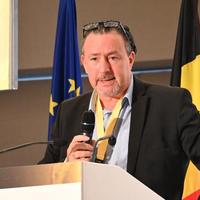

4.1A: Based on 30 years of experience in supporting victims from the Flanders Probation Service in Belgium, this session presents the “Ten commandments of the victim”. These are missing links, based upon experiences of the probation work with victims, and basic conditions for truly putting victims at the center of the justice system (Hans Dominicus and Hannah Bellens). Presentation
4.1B: The Crofton advocacy of a person-centred, community integration and multi-disciplinary approach has lessons for us. This talk focuses on the lessons from the hostile opposition to innovation, and the importance of a strong evidence-base and support in the Crofton Jebb Controversy (Gerry McNally). Presentation
ROOM: AMAZON
4.2A Development of the Korean Electronic Monitoring / 4.2B Guidelines for human rights based electronic monitoring (Room: Mississippi)
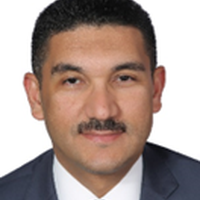


4.2A: This talk will discuss the development of Electronic Monitoring in Korea. Participants will gain valuable insights into the practical applications of EM and its collective impact on probation, parole, and victim-centered justice, by showcasing the system’s effectiveness in preventing offender’s reoffending (Hyung Seob Lee). Presentation
4.2B: PRI and the university of Essex recently took the initiative to develop new EM Guidelines. In this inspirational talk, we will present the research aims and scope on the one hand, and we will present a case study in Jordan including obstacles and lesson learned (Taghreed Jaber, Lorna McGregor and Ali Darweesh Almuseimi).
ROOM: MISSISSIPPI
4.4 The future role of IT and technology in the digital transformation of probation (Room: Everest 1)



The role of IT and technology in the future of probation is critical as it can help improve efficiency, accuracy and effectiveness of probation processes. We discuss how the digital transformation can be significantly enhanced through the smart use of IT and technology. Presentation
ROOM: EVEREST 1
4.5 Hardened clients in probation (Room: Everest 2)


In the Netherlands, we see a hardening of crime, which is reflected in threats and intimidation of professionals working in criminal law. This requires the probation service to find a balance between performing their statutory task and protecting employees against safety risks.
A small group of offenders commit violent crimes with an 'unscrupulous' attitude. These are usually criminals who ended up in drug crime. Their criminal activities can often be classified as organized crime. Probation officers are more often confronted with violent clients and clients who pose a threat or who have made concrete threats.
In a round table discussion we want to further investigate whether this problem is recognized in other countries and how they deal with it. In this session we also aim to exchange best practices and findings from scientific literature on this topic. Presentation
ROOM: EVEREST 2
4.6 Moving Beyond Bars / Reclaiming Identity through Creative Practice (Room: Yangtze 1)

Moving Beyond Bars is a creative program that engages participants in writing and movement to explore and express their full selves. It has been implemented in prisons and release programs for men, women, adults and adolescents.
ROOM: YANGTZE 1
4.7 Future track session 4: The impact of the Changing workforce on probation and parole (Room: Kilimanjaro 2)


In the future track, we delve into the question ‘How do we, as a global probation community, deal with developments that will fundamentally change our field of work?’. We look into the impact of macro-social developments, building on the perspectives on the future of probation and parole from the participants. We work towards a future agenda, that will be transferred to the organisation of the next World Congress on Probation and Parole in 2026.
This session is about the impact of the Changing workforce on probation and parole. How do we keep our workforce up to date in a (fast) changing world? Good probation work is not just about ‘What Works?’, but also about ‘Who works’? In a rapidly changing world, how do we balance quantity and quality of our workforce? It can be hard to find enough and capable new colleagues. Also, societal and technological developments require continuous improvement of our skills. How do we adapt to these changing circumstances and how does this influence the engagement and development of our current and future workforce? Presentation
ROOM: KILIMANJARO 2
4.8 Development of community service in Suriname: a positive probation example for South America (Room: Kilimanjaro 1)


Development of community service in Suriname: a positive probation example for South America
The purpose of this round table is to share experiences with community service in Suriname and to explore effective strategies and challenges for its further development.
ROOM: KILIMANJARO 1
5.1A Hoping for a better future: how can probation foster hope with people on probation? / 5.1B Georgia’s Crime Prevention and Probation System: Innovative approaches in Rehabilitation and Technologies (Room: Amazon)
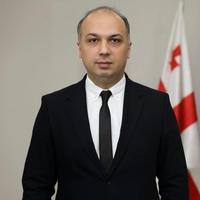


5.1A: Hope can be a powerful driver for positive change in peoples’ lives, but little is known about hope and probation. We sought to understand ways in which probation does and does not create the conditions for more hopeful lives for people on probation (Jake Phillips). Presentation
5.1B: This presentation introduces the best practices of Georgia’s crime prevention and probation system in strengthening country’s public security, in line with Georgia’s 10-year development strategy (Iason Nachkebia and Lado Kheladze). Presentation
ROOM: AMAZON
5.2A Probation authority in the Kyrgyz Republic. Prospects for the development of probation in Central Asia / 5.2B Learning from European experience - Building Probation Capacity and Impact at a Global Level


5.2B: We present and discuss a major research project to identify promising practices in building probation capacity. Results include a capacity building model, 10 success factors, steps to avoid when growing probation, and actions for the international community to support a “step-change” in global probation / community corrections provision (Stephen Pitts and Leo Tigges).
ROOM: MISSISSIPPI
5.2A (CANCELLED) The probation authority in the Kyrgyz Republic has been operating for more than 4 years, in which 53 probation bodies operated. An automated information system for the data of convicted persons and clients involved in public affairs was developed for supervision and a fingerprint system was introduced when accounting for the client (Ruslan Romanov).
5.4 Round table on restorative justice (Room: Everest 1)

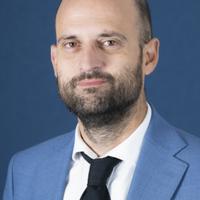

Restorative justice practices have evolved over the last 10 years: it is now seen as a way of working with people under judicial supervision that is independent of the criminal justice system but complementary to the judicial supervision provided by the prison integration and probation services. What van we learn from this development? Presentation
ROOM: EVEREST 1
5.5 Child friendly probation from a global perspective (Room: Yangtze 2)


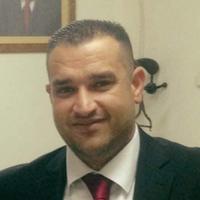

PRI, Terre des Hommes and Justice for Children present case studies of recent projects on child friendly probation systems in Indonesia and Palestina. Based on that, they will discuss an overall framework, challenges, obstacles and opportunities.
ROOM: YANGTZE 2
5.6 How to translate a successful local initiative about restoring the relation between the child and the imprisoned father into a universal framework?! (Room: Kilimanjaro 1)

The spring/autumn camp organised by NGO Exodus Netherlands let children spend time with their fathers who are spending the day in prison. Scientific research shows that these kind of recovery activities have a positive effect on the quality of family relationships during incarceration and post-incarceration relationships.
ROOM: KILIMANJARO 1
5.7 Future track session 5: The impact of Cross-boundary collaboration on probation and parole (Room: Kilimanjaro 2)


In the future track, we delve into the question ‘How do we, as a global probation community, deal with developments that will fundamentally change our field of work?’. We look into the impact of macro-social developments, building on the perspectives on the future of probation and parole from the participants. We work towards a future agenda, that will be transferred to the organisation of the next World Congress on Probation and Parole in 2026.
This session is about the impact of Cross-boundary collaboration on probation and parole. How do we keep collaboration simple in an increasingly complex environment? Over the past 25 years, the work of the probation has become considerably more complicated. We need to co-operate more and more with other public agencies to realize our objectives. One of the challenges in the future is to find a way to reconcile this complexity with the probation worker’s daily work. How do we orchestrate efforts with other agencies, while keeping collaboration and day to day probation work simple? Presentation
ROOM: KILIMANJARO 2
5.8 Hybrid street culture and the connection with young people



The workshop focuses on deepening hybrid street culture, i.e. how the online and offline worlds are interwoven. Joran de Jong, criminologist specialized in youth violence, street culture and social media, takes us into the most current developments and scientific research surrounding the themes of street culture, social media and youth crime. In addition, youth probation officer Danielle Nascimento will provide an insight into the practice. What does this target group look like, how do you guide and move these young people away from crime, what is Street Power? In the workshop, science and practice come together to inspire and thus enter into a conversation with these young people with new insights.
The session is a collaboration between Partner in Crime and the Salvation Army Youth Protection and Probation Service.
6.1A Innovative Approaches for Non-Violent Drug Offenses: A Holistic Paradigm Shift / 6.1B Probation Officers in the Community (Room: Amazon)


6.1A: In Latin America and the Caribbean, criminal justice systems disproportionately impact drug offenders compared to those involved in violent offenses.
This presentation presents a visionary framework for addressing non-violent drug offenses, particularly focusing on women who are mothers or caregivers, with the aim of moving beyond traditional carceral sanctions (Jérôme Mangelinckx).
6.1B: Under the Act for Prevention of Recidivism in Japan, not only probation offices or other national offices but also each local government should make an effort to prevent recidivism and support ex-offenders and their supporters, In daily practice this appears difficult. In this presentation, we try to clarify this and find ways to enchance the communication between PO's and other actors (Yuki Takahashi). Presentation
ROOM: AMAZON
6.2A Cultural Responsiveness in Parole Decision-Making / 6.2B Supporting Criminal Justice Clients with Problem Gambling (Room: Mississippi)




6.2A: The presentation will provide an overview of feedback, challenges and best practices related to culturally responsive hearings, as well as results from a recent research brief on consideration of systemic and background factors in decision-making (Jennifer Oades and Monica Irfan).
6.2B: Problem gambling heightens the likelihood of engaging in criminal behaviors, including property crimes and intimate partner violence. This presentation introduces insights gained from an 8-week Internet-based cognitive behavioral therapy, which is targeted for community sanctions clients with problem gambling (Kirsi-Marja Salohalla and Kalle Lind). Presentation
ROOM: MISSISSIPPI
6.3A Position of children and parenthood in offender management / 6.3B Innovations in Probation (Room: Yangtze 1)



6.3A: This session highlights the systemic application of the Child Reflex: a basic attitude and working tool in dealing with offenders, that helps probation workers to detect disturbing family situations and restore safety as quickly as possible (Silke Daelman and Stephanie De Clercq). Presentation
6.3B: This presentation explores Florida Community Corrections' adoption of evidence-based practices (EBPs) and pioneering initiatives, such as the Bike Team and Mobile Probation Unit (MPU), to enhance community engagement and effectiveness (Joe Winkler). Presentation
ROOM: YANGTZE 1
6.4 Establishing new probation and parole systems in the Global South (Room: Yangtze 2)



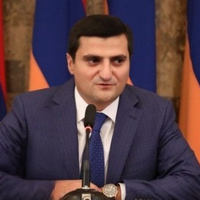
The Penal Reform International Roundtable aims to discuss the barriers and lessons learned from countries in the Global South that have recently started building a probation system in their countries. The countries include: Armenia, Kuwait, Kenya and Zambia. Presentation
ROOM: YANGTZE 2
6.5 Biological and Psychosocial Considerations in the Supervision of Juveniles and Emerging Adults: Sharing Experiences & Developing Best Practices (Room: Everest 2)

In this session, we will draft a working list of best practices and possible innovations for practitioners who serve justice-involved children and emerging adults. And provide you with ideas for better incorporating contemporary empirical knowledge of juvenile development into their daily work.
ROOM: EVEREST 2
6.6 Power To Change: one person, one act, one choice, to change the trajectory of a lifetime (Room: Kilimanjaro 1)


Power to Change is a compelling new documentary from the UK. Among the stories featured is EJ a young man drawn into gang culture from an early age; Lorraine a grieving Mother who lost her son to knife-crime as he saved another boy; Errol a repeat offender with 74 previous convictions; and Nate a former gang-member who was brutally stabbed by a childhood friend.
In a time where youth violence is on the rise across the UK this is a unique film that looks at the simplest solution: the innate goodness of a human being, who will make the right choices given the encouragement and tools to do so. Sometimes all it takes is one person, one act, one choice, to change the trajectory of a lifetime.
The documentary will be followed by Q&A with director Wendy Lewis and cast member Errol McGlashan.
ROOM: KILIMANJARO 1
Fieldtrip to the former Wolvenplein prison in Utrecht
On the day after the congress, we are organising a fieldtrip to the former Wolvenplein prison in Utrecht. You will be given a guided tour of the Netherlands’ oldest cellular prison, that tells the story of the Wolvenburg stronghold, the Wolvenplein prison and the history of the prison system between 1856 and today in the Netherlands. You will also have some time to discover the beautiful city of Utrecht. Transport from and to The Hague is provided. Lunch is not included. There are limited places available for this trip.
The programme is as follows:
- 10.00 departure by bus from World Forum The Hague to Utrecht
- 10.45 arrival and welcome
- 11.00 start tour guide of the former prison
- 12.00 end of tour, possibility to discover the lovely city of Utrecht and have a lunch
- 14.00 departure by bus to The Hague
- 15.00 arrival at World Forum The Hague
